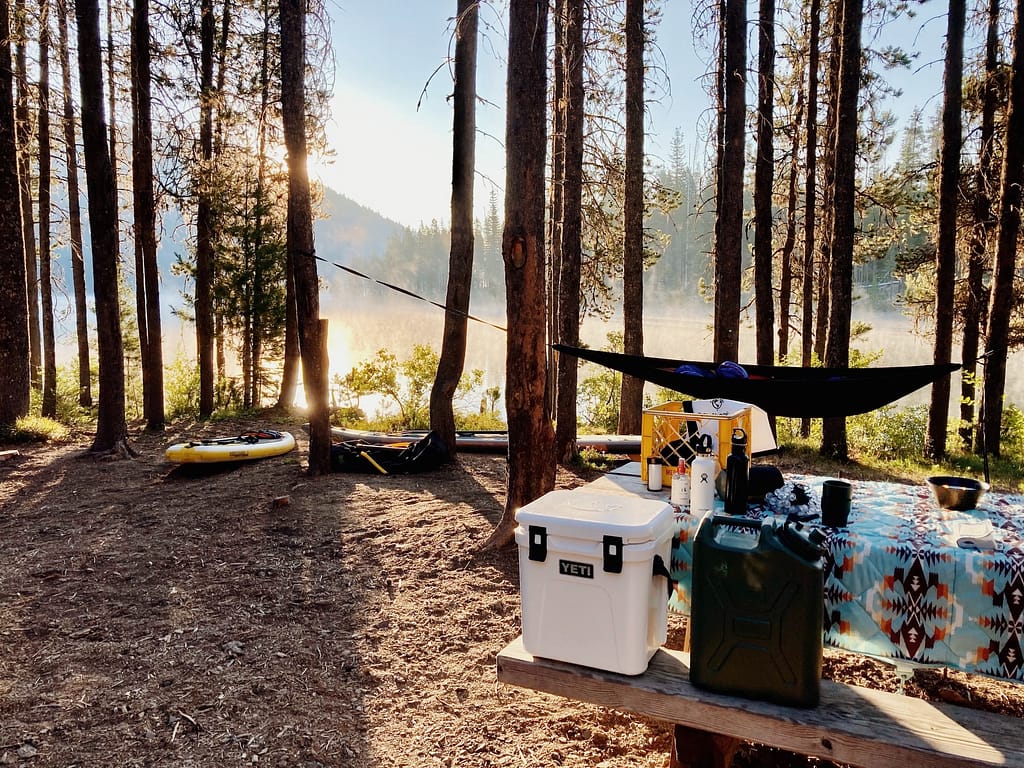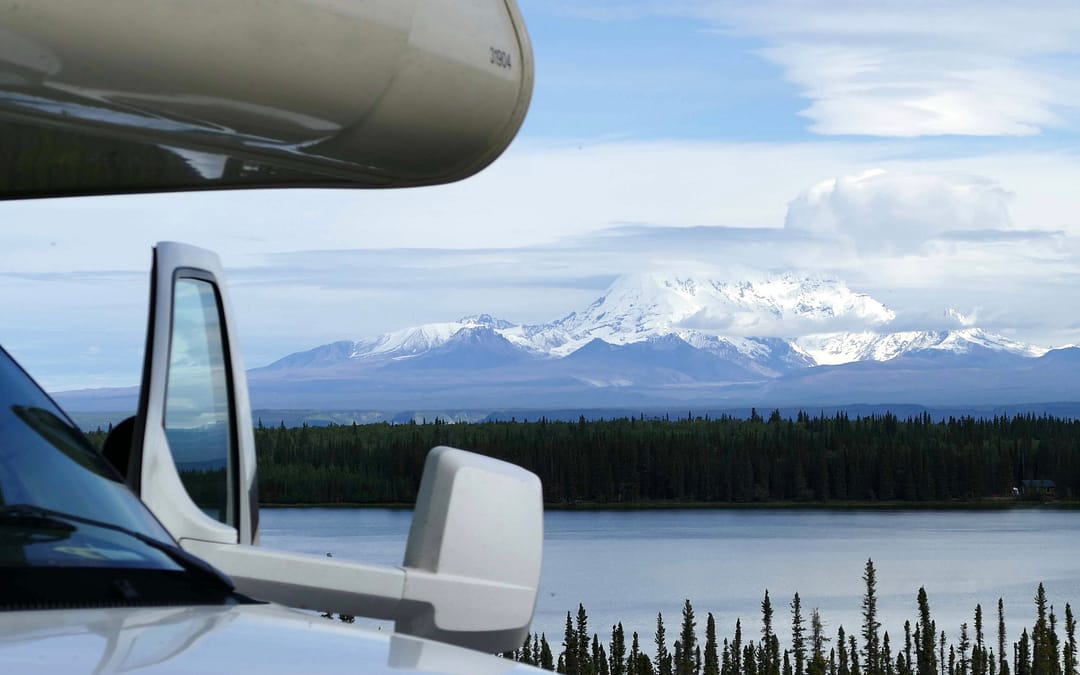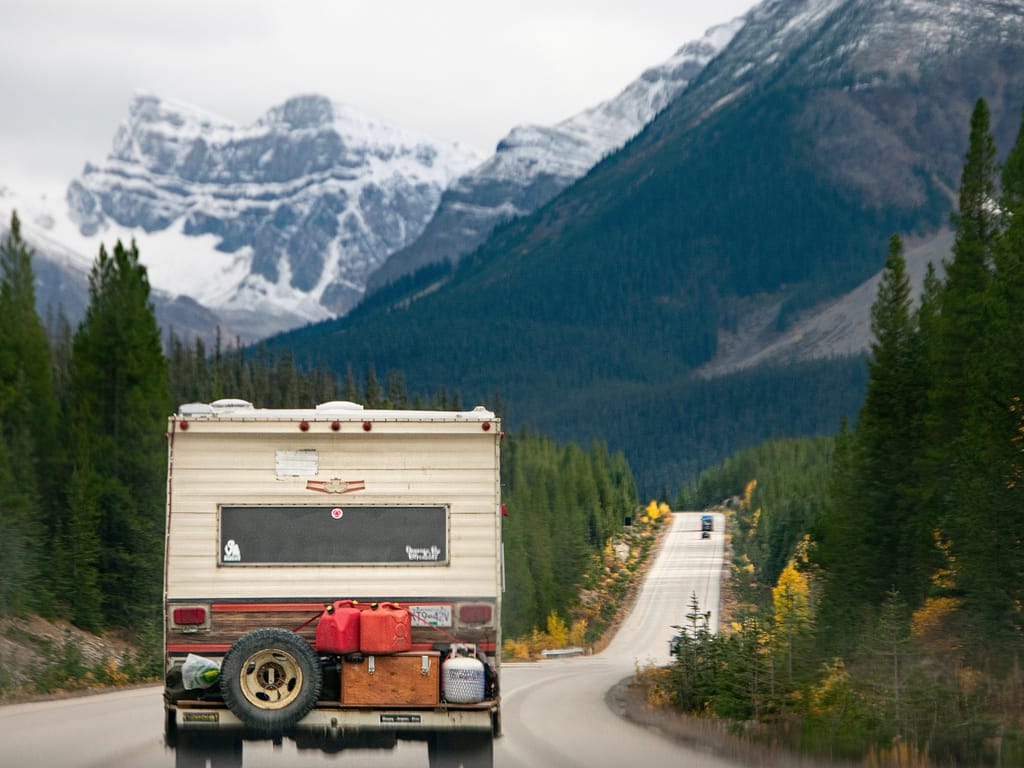This article may contain compensated links, please read our disclaimer for more information.
Looking to head up into the mountains? Good call! Camping in the mountains is an amazing way to immerse yourself in natural beauty, and it makes for an excellent adventure as well. There are tons of awesome dry-camping spots in the mountainous national forests, and there are some pretty great campgrounds hidden away up at those high altitudes.
Still, as wonderful as camping in the mountains can be, it also comes with its own fair share of difficulties. For this reason, it is very important that you head into your mountain camping trip fully prepared.
Not sure how to prepare for such an adventure? You’ve come to the right place. Below, we’ve put together a guide to RV camping in the mountains. Use these tips for a fun and safe trip.
Ensure Your Vehicle Can Handle It
Before you decide to head into the mountains, you will want to make sure it’s actually feasible to do so. Driving up a mountain is hard work, and some vehicles just can’t handle it.
If you are towing with a smaller truck or an older vehicle, you might want to skip steep mountain climbs. Likewise, older gas-powered motorhomes might be better off sticking to flatter roads.
Go in the Summer
The weather in the mountains can be pretty cold. Mountain winters can be unbearable if you don’t add some extra insulation to your RV. Therefore, we highly recommend heading up the mountains in the summer months. While the nights can still be chilly during the summer months, the daytimes are lovely. In fact, we’d even go so far as to say mountain summers are ideal for boondocking!

Download Directions
As is the case in many remote areas, a lot of the more secluded campgrounds are located in areas with absolutely no cell service. If you’re relying on cell service for GPS directions, you could find yourself in a pickle. Instead, download the map before you ever leave to go camping in the mountains, so the GPS will continue working on a basic level even when the cell signal is gone.
Skip the Waterside Parking
One of the best things about the mountains? The gorgeous streams and waterfalls that wind their way to the bottom.
Unfortunately, when heavy rains or fast snow melts happen, the areas near these waters are the first to flood. While it may be tempting to park near a babbling brook, we don’t recommend doing so unless you are certain that flooding won’t happen.
Pack Tools
As mentioned before, many mountain campgrounds are located in remote places. This can make getting help very difficult when things go wrong while camping in the mountains. For this reason, it is important that you carry tools and know how to use them.
A tow rope is a must have, as is extra fuel for your vehicle. You might also consider carrying spare vehicle parts if you know those might be difficult to access during your stay in the mountains.
Carry Extra Drinking Water
Higher altitudes can cause dehydration. Obviously, this isn’t something you want to have to deal with—especially high on a mountain, far from any help—so make sure you pack extra drinking water when camping in the mountains. This is extra important if you will be dry camping and don’t have easy access to potable water.
Additionally, you will want to carry water with you at all times while out exploring and sip throughout the day.
Adjust for Low Oxygen Levels
Another thing that happens as you get higher up in the mountains? The oxygen levels decrease. This means you will have to adjust in a few different ways when camping in the mountains.
Go Easy on Yourself
First, you will need to go easy on yourself as your body acclimates to the lower oxygen levels. Don’t push yourself to hike too hard, and take breaks if you start to feel out of breath or lightheaded.
Grab Some Matches
Low oxygen can make it really difficult to use a lighter. Often, the lighter will simply not light at all. Carrying matches is a simple solution that will allow you to light a fire without fighting with the lighter.
Don’t Rely on Propane Appliances
Like lighters, propane appliances don’t always work right at high altitudes. Depending on the kinds of appliances your RV has, this could include your refrigerator, oven, stove, and water heater.
If you plan to run your fridge on propane, make sure you take an ice chest as a backup plan. It’s also a good idea to give yourself ways to cook that don’t involve the oven or stove.
Adjust the Generator
Planning to use your generator while camping in the mountains? That’s another thing that might be affected by the altitude. Fortunately, many RV generators come equipped with a little knob that will adjust the generator to run at whatever altitude you happen to be at. Make sure you go out and turn the knob to the correct setting before using the generator and you shouldn’t have any problems.
Ease Yourself In
With higher altitudes comes altitude sickness. While not everyone will experience altitude sickness, many do—and in some cases, it can be absolutely debilitating. While we all hope for the best, if you haven’t spent time at high elevations before, you will also want to prepare for the worst.
Don’t plan anything for your first couple of days in the mountains. Instead, give yourself a day or two to get used to the altitude change. Make sure to stay well hydrated, and if you feel sick, allow your body to rest until you’re feeling better. Acetaminophen, ibuprofen, and anti-nausea medicine can also help with altitude sickness.
Camping in the mountains is amazing and we definitely encourage it. Just make sure to use these tips, pack a first aid kit, drive safely, and use common sense to keep you and your family safe as you have some awesome mountain adventures!
Join Fulltime Families
Fulltime Families Members get access to the best resources, community and discounts.
Fulltime Families is a participant in the Amazon Services LLC Associates Program, an affiliate advertising program designed to provide a means for sites to earn advertising fees by advertising and linking to amazon.com, amazon.co.uk, amazon.ca. Amazon and the Amazon logo are trademarks of Amazon.com, Inc. or its affiliates.


